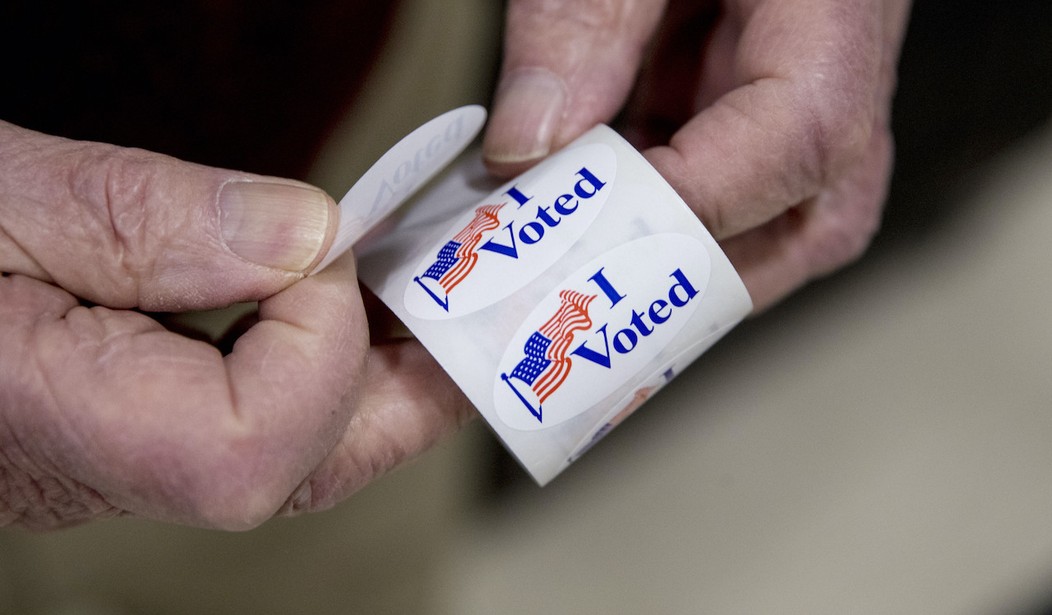If you share a snapshot from the voting booth, elections officials might scour your social media pages and offer you a choice: censorship or a criminal charge.
That's what happened to T. Greg Doucette, who cast his ballot Oct. 15 during early voting at the N.C. Central University School of Law. North Carolina is among 15 states that ban photos of marked ballots. Nine other states maintain unclear or conflicting statutes, according to Ballotpedia.
After tweeting pictures of his ballot before and after voting -- a riff on the "How it started vs. how it's going" relationship meme -- Doucette said a state board of elections investigator phoned him.
A criminal defense attorney who specializes in First Amendment law, Doucette knew a federal judge in New Hampshire had ruled that state's ballot-photography ban unconstitutional in 2015. After hearing from other voters who were warned to delete their publicly posted ballot selfies, he was ready to challenge North Carolina's law on free-speech grounds.
"A good number of folks are sufficiently intimidated that they take it down -- it chills their speech," Doucette said. "They asked me to take it down. I told them, 'No, I'm leaving it up.'"
He also emailed the investigator a written confession along with the original photos from his smartphone and then tweeted screen captures of his email for good measure. While Doucette counsels his clients to never talk to the police or consent to a search, he's ready for his day in court.
Ballot-photo bans are ostensibly designed to prevent voter fraud. People who sell their votes or are coerced into voting a certain way could provide proof with the click of a shutter.
But voters involved in such schemes would be more likely to send photos privately than plaster them on social media. People tell the world which candidates they support, because they're proud of those choices and want to persuade others.
"If someone wants to post it exclusively for political expression purposes, that's the type of stuff the First Amendment has always protected," Doucette said. "And it should."
Recommended
U.S. District Judge Paul Barbadoro agreed, striking down New Hampshire's ballot-selfie ban in August 2015. In a 42-page opinion, Barbadoro described the law as a solution in search of a problem, noting that state officials hadn't received any voter-bribery complaints in 40 years.
The 1st Circuit Court of Appeals upheld the Rideout v. Gardner ruling in September 2016.
"New Hampshire may not impose such a broad restriction on speech by banning ballot selfies in order to combat an unsubstantiated and hypothetical danger," Circuit Judge Sandra L. Lynch wrote for the unanimous three-judge panel. "We repeat the old adage: 'a picture is worth a thousand words.'"
Since the Rideout case began making headlines, seven states have repealed laws against ballot photos or adopted new laws permitting voters' voluntary disclosure of their ballots.
North Carolina's statute prohibits recording the image of a voted ballot "for any purpose not otherwise permitted under law." Doucette says that clause could be interpreted to allow ballot selfies as a form of self-expression while banning bribery. Political advocacy is lawful, after all, and voter fraud isn't.
The State Board of Elections would pull a muscle patting itself on the back for its leniency, but pressuring voters to purge their ballot photos from Facebook is an Orwellian maneuver that raises the specter of selective enforcement. What determines who's let off with a warning and who's charged with a Class 1 misdemeanor? Can we be confident that political preference is never a factor?
As of this writing, Doucette hasn't been charged despite helping election officials build their case against him. The state seems more eager to hassle first-time voters about their social media posts than to fight a losing battle in court.
"Since I posted that tweet and the state board called me, that actually creates, in my mind, enough of a conflict where we can preemptively sue the board to ask for a declaratory judgment," Doucette said.
He's also offering pro bono representation to North Carolina voters charged under the ballot-selfie ban.
Voting rights and free speech rights are constitutional cousins. You shouldn't have to sacrifice the latter to exercise the former.
Corey Friedman is an opinion journalist who explores solutions to political conflicts from an independent perspective. Follow him on Twitter @coreywrites.

























Join the conversation as a VIP Member